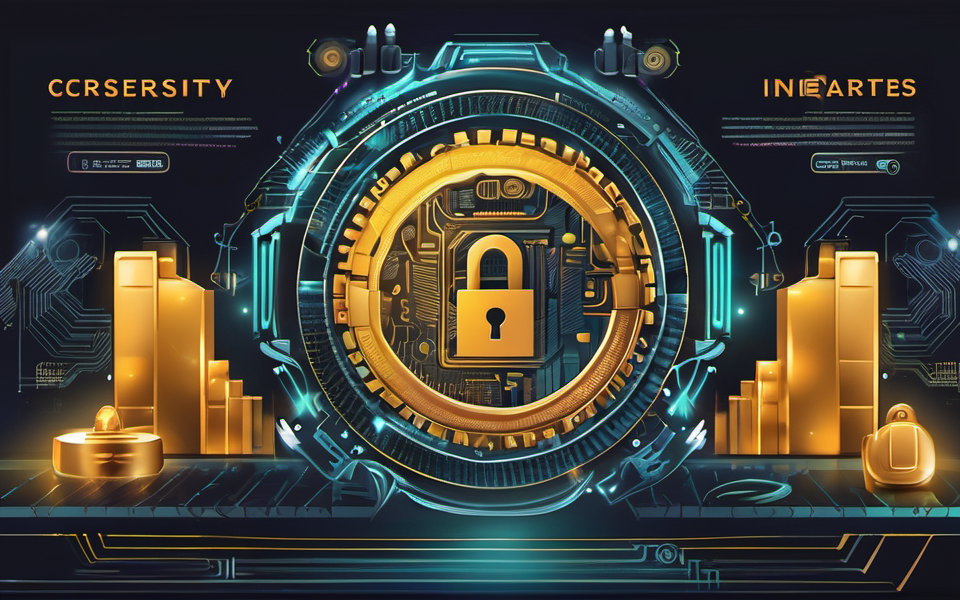Imagine a world where every single digital transaction, every online interaction, and every bit of sensitive data is protected by an impenetrable shield, constantly adapting to the ever-evolving landscape of cyber threats. It might sound like science fiction, but with the rapid advancements in artificial intelligence, machine learning, cloud computing, and quantum computing, this future is closer than you think.
AI & Machine Learning: The Unsung Heroes of Cybersecurity
Let’s face it: cybercriminals are constantly getting smarter and more sophisticated. They’re leveraging advanced social engineering techniques, deploying zero-day exploits, and even utilizing artificial intelligence to launch complex and personalized attacks. To combat these ever-evolving threats, we need to bring a powerful new weapon to the table – AI and machine learning.
How AI & ML Can Outsmart Cyber Threats
- Predictive Security: Imagine being able to anticipate threats before they even emerge. That’s what AI-powered security solutions offer. By analyzing massive datasets of past cyberattacks and malware signatures, AI algorithms can identify patterns and predict potential attacks. This allows security teams to proactively bolster defenses, implement appropriate controls, and minimize potential damage.
- Automated Threat Detection and Response: The sheer volume of cybersecurity incidents is overwhelming for human teams to manage. But with the help of machine learning, we can automate the detection, analysis, and even response to threats. This allows security teams to focus on more strategic initiatives while AI takes care of the repetitive tasks.
- Real-time Threat Analysis and Adaptability: Cyber threats are dynamic, constantly evolving and adapting to security measures. That’s why it’s crucial for our defenses to be equally agile. AI-powered solutions excel in this area. By continuously analyzing threat data and incorporating new information, they can adapt to evolving attack tactics, ensuring that our security systems are always one step ahead.
Cloud Security: A Flexible Fortress
The cloud has revolutionized how we access and manage data. It offers unparalleled flexibility and scalability, but it also comes with new cybersecurity challenges. That’s why cloud security is an absolute necessity in today’s digital landscape.
Building Trust in the Cloud
- Cloud-Native Security: Implementing cloud security solutions goes beyond traditional firewall-based approaches. It requires a paradigm shift, adopting a “cloud-native” security approach that seamlessly integrates with cloud services and infrastructure. This means leveraging technologies like Serverless computing, Container security, and Cloud access security brokers (CASB) to secure data and applications within the cloud environment.
- Zero Trust Security: Gone are the days of assuming users and devices are trusted within your network. Zero Trust security prioritizes strong authentication and continuous verification, treating all requests as potentially suspicious. This approach minimizes the impact of data breaches, even if an attacker manages to gain access to a compromised user account.
- Data Protection in the Cloud: Ensuring data confidentiality, integrity, and availability is paramount in cloud environments. Data loss prevention (DLP) tools, cloud encryption services, and cloud access control mechanisms help to protect sensitive data from unauthorized access and ensure compliance with industry regulations like GDPR and CCPA.
Quantum Computing: A Leap Towards Unbreakable Security
Quantum computing might sound like something out of a science fiction movie, but its potential impact on cybersecurity is nothing short of revolutionary. While traditional computers process information in bits (either 0 or 1), quantum computers use qubits which can represent 0, 1, or both simultaneously. This unlocks incredible computational power, offering unprecedented opportunities for breaking and defending cryptographic systems.
Quantum Cryptography: The Future of Secure Communications
- Post-Quantum Cryptography: Today’s widely used encryption algorithms like RSA and ECC rely on the difficulty of factoring large numbers or finding discrete logarithms. Quantum computers threaten to make these tasks trivial, jeopardizing our current encryption systems. To stay ahead of this challenge, researchers are developing post-quantum cryptography (PQC) algorithms that are resistant to attacks from both traditional and quantum computers.
- Quantum Key Distribution: One of the most promising applications of quantum computing in cybersecurity is *quantum key distribution (QKD). QKD leverages the principles of quantum mechanics to generate and distribute encryption keys with unparalleled security. Any attempt to intercept or eavesdrop on the communication will be immediately detected, making the transmission virtually tamper-proof.
Key Takeaways
- Cyber threats are constantly evolving, requiring us to constantly innovate in cybersecurity solutions.
- AI and Machine learning play a critical role in analyzing threat patterns, automating threat responses, and adapting security measures in real time.
- Cloud security requires adopting cloud-native solutions and prioritizing zero trust security to ensure data confidentiality and integrity within the cloud.
- Quantum computing presents both challenges and opportunities in cybersecurity.
- Post-quantum cryptography (PQC) and quantum key distribution (QKD) promise unprecedented levels of security, paving the way for a future of unbreakable encryption.
As technology continues to advance, cybersecurity must evolve at an equally rapid pace. By harnessing the power of artificial intelligence, cloud security, and quantum computing, we can build a digital world that is safe, secure, and accessible for everyone. Together, let’s make the digital landscape an impenetrable fortress, protected from all threats and ready to embrace the exciting future that awaits.




